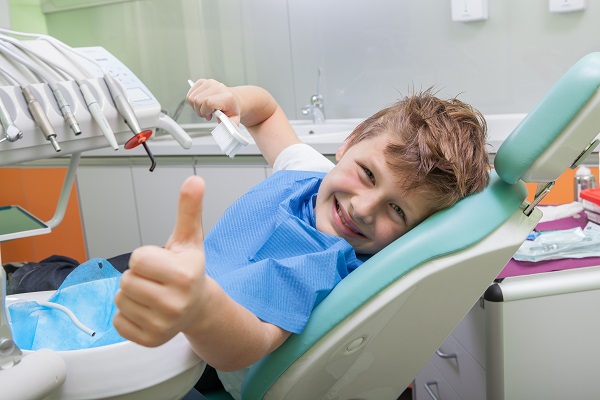What Additional Skills Does a Pediatric Dentist Have?

When making a child's first dental appointment, is a pediatric dentist better suited for the job? Even though all dentists receive the same educational foundation through dental school, one who treats children gets further education and training to deal with this unique group of patients. Knowing what skills this provider has may aid in whether a parent chooses to establish with one or not.
Basic dental training
The fundamental requirements for becoming a dentist are pretty universal throughout the United States. According to Doctorly.org, candidates must first seek to get a bachelor's degree in a science-related field, preferably biology or anatomy. Candidates then go on to dental school spending the first two years in the classroom, and the last two doing clinical work. Upon graduating from an accredited program, candidates then take the national board exam. Passing this test is required to obtain a license and become a practicing dentist.
Pediatric dentists and further training
At some point during dental school, some students will decide to pursue a dental specialty. One such specialty is taking care of children's oral health. After passing the licensing exam, these students will enter a residency program specializing in pediatric dentistry. Depending on state laws, the residency training may last anywhere from two to three years. Those who complete this will receive certification as a pediatric dentist.
Additional skills that help care for children
Dealing with children and their unique health needs is not all about education. An individual must have a particular set of qualities that make them more fit than others.
Calming demeanor
Children are more prone to develop a fear of the dentist. However, the right bedside manner can make all the difference in whether that child will overcome that fear or go on to carry it through adulthood. A good pediatric dentist should have a pleasant and calming demeanor when presenting to children. It is also helpful to be able to communicate on a level that they understand and appreciate.
Patience
Any parent can attest to the need for patience when dealing with kids. A children's dentist should also possess a fair amount of reserve and patience. Children may ask repeating questions or flat out refuse to comply with a directive. If a child becomes obstinate or cranky, it may make a dentist's job impossible to perform. Keeping calm and having patience comes in handy.
Think and act quickly
Things may happen during a patient's time in the chair that deviate from the plan. While it is crucial for any dentist to think and act quickly, a children's dentist may have only seconds to decide how to deal with the unexpected. Being able to come up with solutions on the fly and execute them without alarming the patient are helpful when treating children.
Conclusion
Deciding between a regular dentist and a pediatric dentist may come down to preference; however, parents may want to think about the additional skills and training required for pediatrics. Becoming certified to treat children's teeth from infancy through the teen years is something that takes a special kind of provider.
Request an appointment here: https://www.hvkidsmiles.com or call Hudson Valley Pediatric Dentistry at (845) 363-4177 for an appointment in our Middletown office.
Check out what others are saying about our services on Yelp: Read our Yelp reviews.
Recent Posts
Dental sealants safeguard the teeth against tooth decay by forming a barrier between bacterial plaque and the tooth enamel. The many tiny grooves on the surfaces of the back teeth may catch food particles. Since routine brushing cannot entirely remove them, they often stay there for an extended period. Cavities develop as a result of…
If a cavity develops and worsens, it could lead to the risk of a dental emergency due to an infection or severe discomfort. Dental sealants significantly reduce the risk of a dental emergency by helping to prevent cavities in vulnerable areas of teeth. Read on to learn how dental sealants can prevent a dental emergency…
Pediatric dentistry is a field of dental care that helps foster healthy oral habits in children and adolescents that can last a lifetime. By introducing young patients to regular dental care early on, these dental professionals and the patient's parents can set the foundation for strong, healthy teeth and gums. Here are five ways pediatric…
Cavity treatment for kids is important to keeping their teeth healthy and their smiles growing strong. Cavities are one of the most common dental problems in children, but they can be treated and prevented with proper care. Parents can help their children maintain healthy teeth and avoid future dental issues by understanding how to treat…


